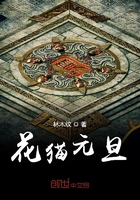"The queen must know," said Sapt. "Let her stay at Zenda and give out that the king is at the lodge for a day or two longer. Then you, Fritz--for you must ride to the castle at once--and Bernenstein must get to Strelsau as quick as you can, and find Rudolf Rassendyll. You three ought to be able to track young Rupert down and get the letter from him. If he's not in the city, you must catch Rischenheim, and force him to say where he is; we know Rischenheim can be persuaded. If Rupert's there, I need give no advice either to you or to Rudolf."
"And you?"
"James and I stay here. If any one comes whom we can keep out, the king is ill. If rumors get about, and great folk come, why, they must enter."
"But the body?"
"This morning, when you're gone, we shall make a temporary grave.
I dare say two," and he jerked his thumb towards poor Herbert.
"Or even," he added, with his grim smile, "three--for our friend Boris, too, must be out of sight."
"You'll bury the king?"
"Not so deep but that we can take him out again, poor fellow.
Well, Fritz, have you a better plan?"
I had no plan, and I was not in love with Sapt's plan. Yet it offered us four and twenty hours. For that time, at least, it seemed as if the secret could be kept. Beyond that we could hardly hope for success; after that we must produce the king;
dead or alive, the king must be seen. Yet it might be that before the respite ran out Rupert would be ours. In fine, what else could be chosen? For now a greater peril threatened than that against which we had at the first sought to guard. Then the worst we feared was that the letter should come to the king's hands.
That could never be. But it would be a worse thing if it were found on Rupert, and all the kingdom, nay, all Europe, know that it was written in the hand of her who was now, in her own right, Queen of Ruritania. To save her from that, no chance was too desperate, no scheme too perilous; yes, if, as Sapt said, we ourselves were held to answer for the king's death, still we must go on. I, through whose negligence the whole train of disaster had been laid, was the last man to hesitate. In all honesty, I
held my life due and forfeit, should it be demanded of me--my life and, before the world, my honor.
So the plan was made. A grave was to be dug ready for the king;
if need arose, his body should be laid in it, and the place chosen was under the floor of the wine-cellar. When death came to poor Herbert, he could lie in the yard behind the house; for Boris they meditated a resting-place under the tree where our horses were tethered. There was nothing to keep me, and I rose;
but as I rose, I heard the forester's voice call plaintively for me. The unlucky fellow knew me well, and now cried to me to sit by him. I think Sapt wanted me to leave him, but I could not refuse his last request, even though it consumed some precious minutes. He was very near his end, and, sitting by him, I did my best to soothe his passing. His fortitude was good to see, and I
believe that we all at last found new courage for our enterprise from seeing how this humble man met death. At least even the constable ceased to show impatience, and let me stay till I could close the sufferer's eyes.
But thus time went, and it was nearly five in the morning before I bade them farewell and mounted my horse. They took theirs and led them away to the stables behind the lodge; I waved my hand and galloped off on my return to the castle. Day was dawning, and the air was fresh and pure. The new light brought new hope; fears seemed to vanish before it; my nerves were strung to effort and to confidence. My horse moved freely under me and carried me easily along the grassy avenues. It was hard then to be utterly despondent, hard to doubt skill of brain, strength of hand, or fortune's favor.
The castle came in sight, and I hailed it with a glad cry that echoed among the trees. But a moment later I gave an exclamation of surprise, and raised myself a little from the saddle while I
gazed earnestly at the summit of the keep. The flag staff was naked; the royal standard that had flapped in the wind last night was gone. But by immemorial custom the flag flew on the keep when the king or the queen was at the castle. It would fly for Rudolf V. no more; but why did it not proclaim and honor the presence of Queen Flavia? I sat down in my saddle and spurred my horse to the top of his speed. We had been buffeted by fate sorely, but now I
feared yet another blow.
In a quarter of an hour more I was at the door. A servant ran out, and I dismounted leisurely and easily. Pulling off my gloves, I dusted my boots with them, turned to the stableman and bade him look to the horse, and then said to the footman:
"As soon as the queen is dressed, find out if she can see me. I
have a message from his Majesty."
The fellow looked a little puzzled, but at this moment Hermann, the king's major-domo, came to the door.
"Isn't the constable with you, my lord?" he asked.
"No, the constable remains at the lodge with the king," said I
carelessly, though I was very far from careless. "I have a message for her Majesty, Hermann. Find out from some of the women when she will receive me."
"The queen's not here," said he. "Indeed we've had a lively time, my lord. At five o'clock she came out, ready dressed, from her room, sent for Lieutenant von Bernenstein, and announced that she was about to set out from the castle. As you know, the mail train passes here at six." Hermann took out his watch. "Yes, the queen must just have left the station."
"Where for?" I asked, with a shrug for the woman's whim. "Why, for Strelsau. She gave no reasons for going, and took with her only one lady, Lieutenant von Bernenstein being in attendance. It was a bustle, if you like, with everybody to be roused and got out of bed, and a carriage to be made ready, and messages to go to the station, and--"
"She gave no reasons?"















